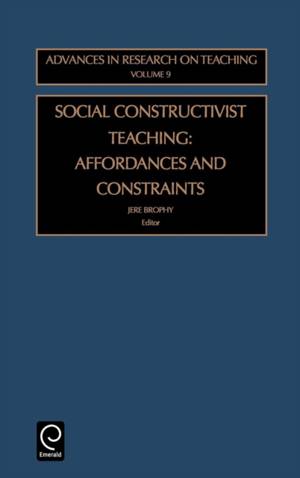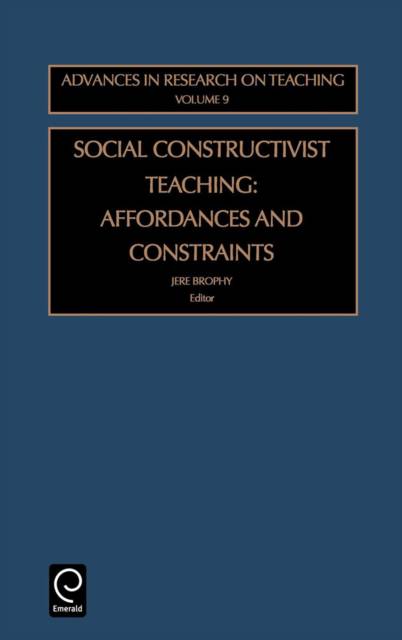
Bedankt voor het vertrouwen het afgelopen jaar! Om jou te bedanken bieden we GRATIS verzending (in België) aan op alles gedurende de hele maand januari.
- Afhalen na 1 uur in een winkel met voorraad
- In januari gratis thuislevering in België
- Ruim aanbod met 7 miljoen producten
Bedankt voor het vertrouwen het afgelopen jaar! Om jou te bedanken bieden we GRATIS verzending (in België) aan op alles gedurende de hele maand januari.
- Afhalen na 1 uur in een winkel met voorraad
- In januari gratis thuislevering in België
- Ruim aanbod met 7 miljoen producten
Zoeken
Social Constructivist Teaching
Affordances and Constraints
€ 293,45
+ 586 punten
Omschrijving
This volume is a sympathetic but analytical and critical view of social constructivist teaching, considering both its affordances (what it offers to students when implemented well in situations for which it is well suited) and its constraints (enabling conditions; situations in which these conditions are absent and other forms of teaching are more appropriate). Contributors were asked to explain what social constructivist teaching means in the areas of teaching in which their scholarly work has concentrated, to describe the forms that such teaching takes and the rationale for using them, assess their strengths/areas of applicability and their weaknesses/areas of irrelevance or limited applicability, and talk about how the approaches would need to be adjusted from their usual forms in order to match the affordances and limitations of certain students, instructional situations, etc. The authors focus on theory and research relating to social constructivist teaching, not merely social constructivist ideas about epistemology or learning. Taken together, the contributions encompass most grade levels and school subjects and include attention to small-group as well as whole-class settings and to selection of learning activities as well as scaffolding of discourse. Most currently available scholarly writing on social constructivist teaching is limited to consideration of propositional knowledge (defining it and identifying its key characteristics) and procedural knowledge (describing its implementation in detail). This volume also includes much-needed conditional knowledge (specification of when and why it would or would not be used).
Specificaties
Betrokkenen
- Uitgeverij:
Inhoud
- Aantal bladzijden:
- 384
- Taal:
- Engels
- Reeks:
- Reeksnummer:
- nr. 9
Eigenschappen
- Productcode (EAN):
- 9780762308736
- Verschijningsdatum:
- 21/06/2002
- Uitvoering:
- Hardcover
- Formaat:
- Genaaid
- Afmetingen:
- 156 mm x 234 mm
- Gewicht:
- 712 g

Alleen bij Standaard Boekhandel
+ 586 punten op je klantenkaart van Standaard Boekhandel
Beoordelingen
We publiceren alleen reviews die voldoen aan de voorwaarden voor reviews. Bekijk onze voorwaarden voor reviews.








